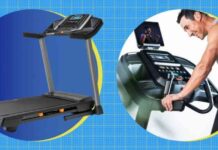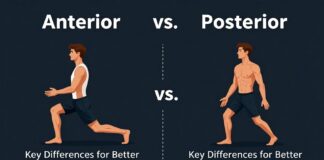Essential Caregiving Resources and Tips: Your Comprehensive Guide to Navigating Caregiver Duties
Being a caregiver or care partner is a monumental task that requires managing someone else’s health care, daily tasks, financial decisions, and more. The National Institute on Aging (NIA) recognizes the challenges caregivers face and offers expert-backed advice to make this journey more manageable for you and your loved one. Whether you are new to caregiving or a seasoned caregiver, the NIA website is a valuable resource to help you navigate this complex role effectively and compassionately.
New to caregiving? Start here
One of the first steps in becoming an effective caregiver is to educate yourself about your loved one’s medical condition. Understanding their health needs, treatments, and medications is crucial for providing the best possible care. The NIA emphasizes the importance of communication and suggests discussing these topics openly with your loved one. If they are hesitant to share information, reassure them that knowing these details will help you care for them better. Additionally, the NIA provides guidance on obtaining written permission to access medical information, ensuring you have the necessary tools to provide optimal care.
The Caregiver’s Handbook
For comprehensive information on caregiving essentials, the NIA offers the Caregiver’s Handbook, a valuable resource available for download or as a free order. This handbook covers essential topics such as finding care at home, long-term care facilities, caregiving costs, coordinating medical care, planning ahead, and self-care tips. By equipping yourself with this handbook, you will have a practical guide to navigate the various aspects of caregiving effectively.
Get caregiver training
To enhance your caregiving skills, consider enrolling in caregiver training programs offered by hospitals, government agencies, and nonprofit organizations. These programs may be free or low-cost, and some costs may be covered by Medicare or Medicaid. By investing in caregiver training, you will gain valuable knowledge and skills to provide optimal care for your loved one.
Helping someone with exercise
Physical activity is essential for both caregivers and their loved ones, especially for older adults and individuals with chronic health conditions. Consult with your loved one’s health care provider to determine the most suitable exercise regimen. The NIA provides exercise ideas tailored to specific chronic conditions such as Alzheimer’s disease, arthritis, COPD, diabetes, heart health issues, osteoporosis, and chronic pain. By incorporating regular physical activity into your caregiving routine, you can promote overall health and well-being for both yourself and your loved one.
Tracking and sharing caregiver duties
Caregiving involves juggling multiple responsibilities and tasks. The NIA offers helpful worksheets to help you stay organized and delegate tasks to other family members or friends when needed. These worksheets cover caregiver responsibilities, medications and supplements, and important documents and paperwork. By utilizing these resources, you can streamline your caregiving duties and ensure that all essential tasks are completed efficiently.
Making someone’s home safer
If your loved one is residing in their home under your care, it is essential to assess the home environment for safety hazards and mobility challenges. The NIA provides a home safety checklist and a room-by-room guide to help you create a safe living space for your loved one. By taking proactive measures to address potential risks, you can create a secure and comfortable environment for your loved one.
Finding services and community resources
Explore the various services and resources available to support older adults and caregivers in your community. Nonprofit organizations and government agencies may offer services to help alleviate the caregiving workload, from household chores to personal care assistance. These services may be free or low-cost and may be covered by insurance or government programs. Utilize resources such as the Eldercare Locator to identify available services in your area. By accessing these resources, you can enhance the quality of care provided to your loved one and alleviate some of the caregiving burdens.
Caregiving for someone with Alzheimer’s disease
Caring for an individual with Alzheimer’s disease presents unique challenges that require specialized knowledge and support. The NIA offers a range of resources tailored to caregivers of individuals with Alzheimer’s, including tips for adapting activities, personal care assistance, hospital visits, and legal and financial planning. By leveraging these resources, you can navigate the complexities of Alzheimer’s caregiving more effectively and ensure the well-being of your loved one.
Still have questions about caregiving?
If you have additional questions or need further support, the NIA information centers are available to assist you. Staff members are equipped to provide information, referrals, and guidance on a wide range of caregiving topics. Reach out to the National Institute on Aging Information Center or the Alzheimer’s and Related Dementias Education and Referral Center for personalized assistance and resources. Expert support is available Monday through Friday, 8:30 a.m. to 5 p.m. ET via phone or email.
In conclusion, caregiving is a challenging yet rewarding journey that requires dedication, compassion, and expertise. By utilizing the wealth of resources and tips provided by the National Institute on Aging, you can enhance your caregiving skills, improve the quality of care for your loved one, and prioritize your well-being as a caregiver. Remember, you are not alone in this journey, and support is available to help you navigate the complexities of caregiving with confidence and compassion. Embrace the guidance offered by the NIA and empower yourself to be the best caregiver you can be.


















